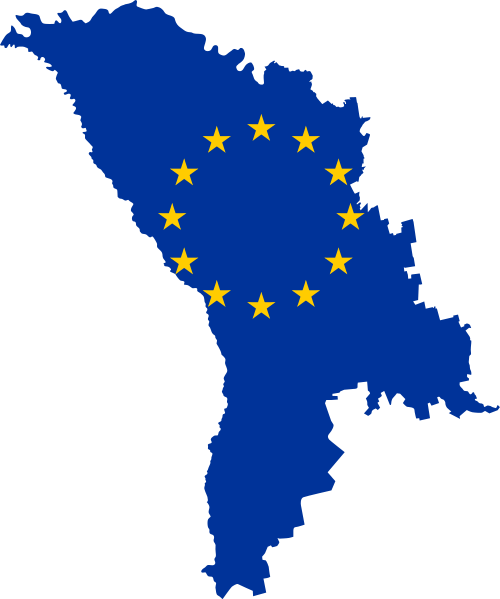Moldova’s Uncertain Future
What happened in Moldova in early 2013 and how did this change the country’s standing in the Eastern Partnership (EaP)?
September 1, 2013 -
David Rinnert
-
Articles and Commentary

500px-Moldova_EU.png
The policy paper The Republic of Moldova in the EaP: From ‘Poster Child’ to ‘Problem Child’? published via Friedrich Ebert Stiftung in August 2013, reflects on Moldova’s role in the EaP in light of the political crisis in the country and the upcoming Vilnius Summit in November of this year.
Under Prime Minister Vlad Filat’s administration (2009–2012), Moldova was portrayed as the success story of the EaP. This interpretation came to an abrupt end in 2013 at the outbreak of Moldova’s political crisis. The circumstances of Filat’s resignation and the establishment of the new administration under Iurie Leancă have exposed the ineffectiveness of the country’s national institutions and the corruption within its political system.
Despite the events of early 2013, the status of the Republic of Moldova in the EaP has yielded positive results in many areas. Following the negotiations to establish association, deep and comprehensive free trade and visa liberalisation agreements, a number of reforms have been implemented in recent years. However, it is no longer likely that these agreements will be ratified at the EaP summit in Vilnius in November 2013.
What is the outlook for the Republic of Moldova in the EaP, then? First of all, the advancement of the republic’s integration process strongly depends on the political developments that will take place in the country in the next few months. At the moment it is hard to say whether the fragile new ruling coalition under Leancă will be maintained until the parliamentary elections in 2014. Even if it does hold, it is not unlikely that the Communist Party will ascend to power at the next election based on the current survey results. Brussels and the member states should take this scenario into consideration. It is still necessary to engage in a dialogue with the CP, especially if the EU wants to prevent Moldova from completely rejecting the path of EU integration in the case of a communist government.
From the EU’s perspective, the Moldovan integration process must be re-evaluated regardless of the changes that take place in the government. Aside from adjusting its outlook on the political situation in Moldova, Brussels should, above all, be analysing how the instruments of the EaP could be used more effectively in the country and how to take into account the financial absorption limits of the Moldovan state institutions. So far, the EU has focused too much on legislative reforms and not ascribed enough importance to structural challenges. The focus should be more on targeted interventions of these structural problems, for example, in the public administration, and clear, tangible changes for the population.
Despite re-evaluating the situation, the EU cannot be left empty-handed at the summit in Vilnius. In addition to its praise of Chișinău’s various reform efforts, the EU has called so much attention to the Moldovan success story that a summit without concrete results for Moldova would jeopardise the EaP’s credibility in Chișinău and beyond. Considering the current situation, the compromise seems to be an initialling of the DCFTA and the AA with the chance to ratify them in spring 2014. Simultaneously, Brussels should be developing a medium-term strategy for the time after this ratification. The passing of the AA, the DCFTA and the visa liberalisation agreement was often portrayed as a kind of resolution for the EaP partner countries, yet legal implementation of the agreements is only an intermediate step in the framework of the EaP initiative.
Independent of the policy in Brussels, the Republic of Moldova faces an uncertain future in the wake of the 2013 government crisis. Although the EU can and should exercise its power via the EaP to ensure that the local state elite puts the public welfare before defending special interests, the most crucial steps in that direction must be taken by Chișinău itself.
David Rinnert works with the German Development Agency (GIZ) in Moldova and is an independent researcher on post-Soviet transitions.
The policy paper published via Friedrich Ebert Stiftung and cited in the text can be accessed here.


































